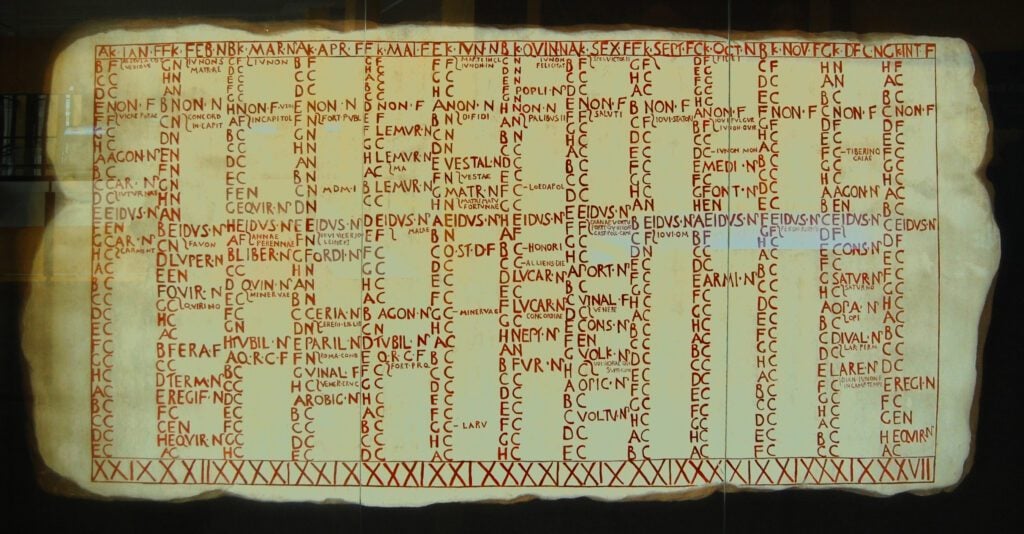The Gregorian calendar is a solar calendar that is widely used all over the globe. It is named after Pope Gregory XIII, who announced calendar modifications for all of Catholic Christendom in the papal bull Inter gravissimas in 1582. But did you know why the first month in the Gregorian calendar is January?
The month of January is named after Janus, the Roman God of beginnings, as it is the first month of the Gregorian calendar.
What is the Original Goal of the Gregorian Calendar?
When Pope Gregory XIII introduced the Gregorian calendar in 1582, Europe was still using the Julian calendar, which Julius Caesar had instituted in 46 BC The calendar had been out of sync with the seasons since the Roman emperor’s system underestimated the solar year’s length by 11 minutes. Gregory was concerned since Easter, which was usually celebrated on March 21, was moving further away from the spring equinox with each passing year. (Source: History)
The Gregorian Calendar Differs by 26 Seconds Every Year from the Solar Year
Lilius’ innovative method for synchronizing the calendar with the seasons is still 26 seconds off. As a result, there has been a several-hour gap in the years since Gregory presented his calendar in 1582. The Gregorian calendar will be a full day ahead of the solar year by the year 4909. (Source: History)
What is the Perception of the Protestants Regarding the Gregorian Calendar?
Even though Pope Gregory’s papal bull altering the calendar had no authority outside of the Catholic Church, Catholic countries such as Spain, Portugal, and Italy quickly accepted the new system for civil affairs.
On the other hand, European Protestants were overwhelmingly opposed to the shift due to its ties to the papal, which they saw as an attempt to stifle their movement. Protestant Germany did not convert until 1700, and England resisted until 1752. Even later, Orthodox countries remained to the Julian calendar, and their national churches never accepted Gregory’s reforms. (Source: History)
What Happened to Great Britain When They Adopted the Gregorian Calendar?
According to some reports, an act of Parliament advanced the calendar from September 2 to September 14, 1752, causing outrage among English inhabitants. Today, most historians feel that these protests either never took place or were dramatically exaggerated. “It is delightful for an elderly man to be able to go to bed on September 2 and not have to get up until September 14,” Benjamin Franklin wrote on the other side of the Atlantic. (Source: History)
Before The Gregorian Calendar, When was the New Year Celebrated?
The calendar revision of Julius Caesar in 46 BC January 1 was established as the first day of the year. However, during the Middle Ages, European countries replaced it with days that had higher religious significance, such as December 25, the anniversary of Jesus’ birth, and March 25, the anniversary of the Crucifixion or the Feast of the Annunciation. Until January 1, 1752, the latter, known as Lady Day because it honors the Virgin Mary, represented the start of the year in Britain. (Source: History)
